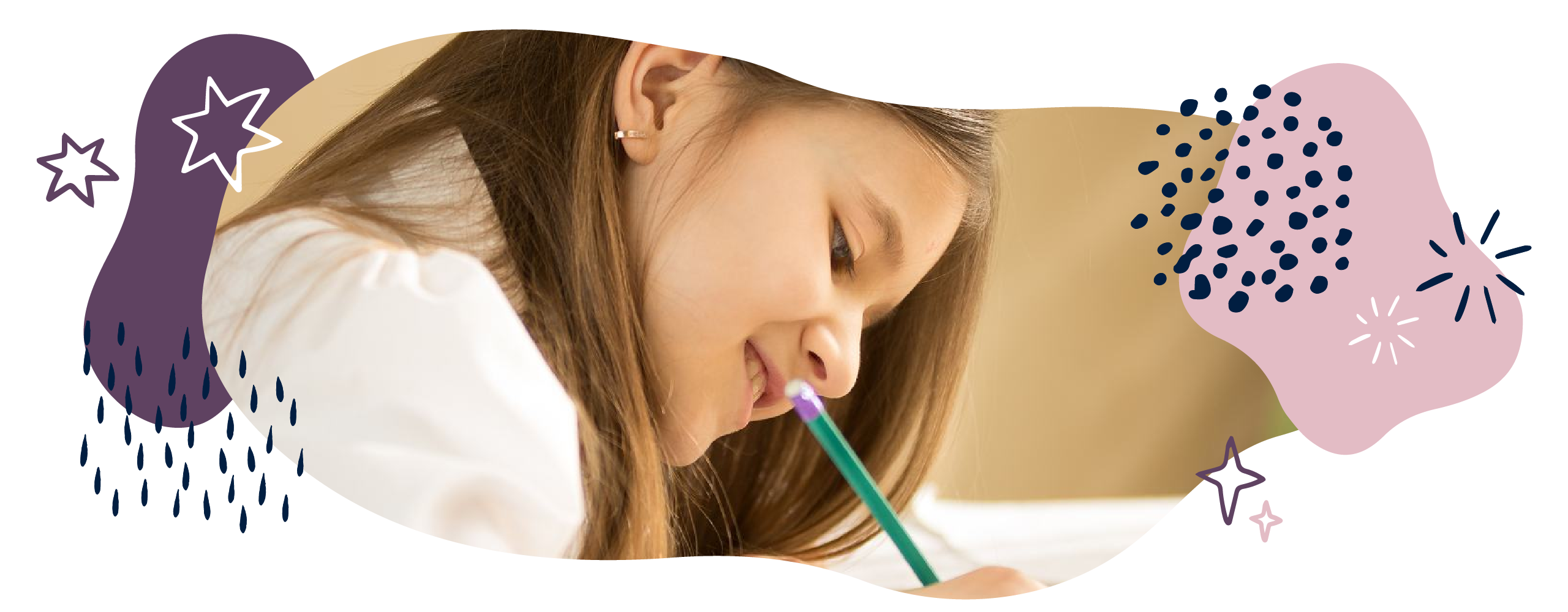Key Stage 2 SATs grammar, punctuation, and spelling test
Grammar, punctuation, and spelling are some of the building blocks of good writing. Your child’s writing, including their use of grammar, punctuation, and spelling, is assessed throughout the year by their teacher. These three areas are also formally tested in a separate SATs test in May of Year 6. This SATs test is known as the SPaG test.
SPaG is an informal term that means spelling, punctuation, and grammar. When people refer to the SPaG test, they are actually talking about two tests that Year 6 children sit in May: one 45 minute test on grammar and punctuation, and one 15 minute test on spelling.
Year 2 children have an similar, shorter test checking spelling, grammar, and punctuation, but schools can choose whether or not to use it, and if they do, it is marked by the teachers.
Why is the SPaG test necessary?
While some feel that the best way to learn to write well is to read and read and read, understanding how sentences are built can really improve the quality of your writing. Having a shared language helps us talk about writing. For example:
“I really like how you’ve used adverbials to build the scene, but two of your prepositions are incorrect.”
Without a shared understanding of these terms, precise feedback like this would be difficult, if not impossible. Testing a child’s understanding of these words helps to reinforce their knowledge.
Try not to be put off by complicated terminology! We all use adverbials, prepositions, pronouns, and so on, even if we don’t know what they are called. It could be helpful to encourage your child to tell you about some of these terms, and this grammar glossary is a good source of information too.
Confidence in spelling, meanwhile, helps children to communicate ideas quickly and clearly; if they have to think a lot about spellings, they will forget their ideas! And sometimes, children avoid using really effective words because they aren’t sure how to spell them.
What parts of the SPaG test do children find hardest?
In our experience, the aspects of grammar and punctuation that children find hardest are:
- Knowing where to put commas and apostrophes (and where not to!).
- Coming up with synonyms and antonyms (words meaning the same/the opposite).
- More advanced punctuation like brackets, dashes, and colons.
- Recognising different tenses.
How can I help my child?
1. Read lots!
More than anything, we would recommend lots of reading (and being read to by parents/carers, or audio books) as many grammar questions may be answered by asking the question, “What sounds right here?”.
To know what sounds right, your child needs to have heard lots of good written language, and this sense of what is right will come from experience with high-quality texts. Reading widely and noticing things like punctuation and spelling is useful too – if you’re reading with your child, try to show enthusiasm for these things, too.
2. Break down words
Reassure your child that no-one can memorise every word that exists. A key skill is to hear a word and then break it down into its syllables (ad-vent-ur-ous). Then they can try to spell each syllable in turn.
3. Keep an eye out for useful resources
You can find lots of grammar activities on the internet for additional support (for example, take a look at our grammar, punctuation and spelling made easy page), and we heartily recommend having the Oxford School Grammar, Punctuation and Spelling Dictionary to hand as a quick reference tool.
4. Have fun!
If your child is given work to do at home to prepare, try to make the sessions as fun and positive as possible. Covering fewer things in small chunks and returning to them more than once will help your child remember their learning. Giving your child frequent breaks, including fresh air and some form of exercise, will also help the learning process. For fun grammar activities and games, why not take a look at our Kids’ activities page?
5. Get used to test conditions
The format of the test presents questions in a variety of ways: tick, circle, underline, explain, and insert. Your child’s teacher will help them get to know these different types of questions. As always, the most important advice is: “Read each question carefully and more than once – you probably know the answer.”
6. Finally, sleep!
Keep in mind that the most important aspect of learning that can happen at home is sleep. No learning at all can happen without it, and a child sleeping 8–9 hours a night will remember more than a child sleeping less.
Advice written by education experts Christine Chen and Lindsay Pickton.
Free eBook Library
Find a huge selection of free eBooks to encourage your child to read and support their reading journey in our library. Take a look >

